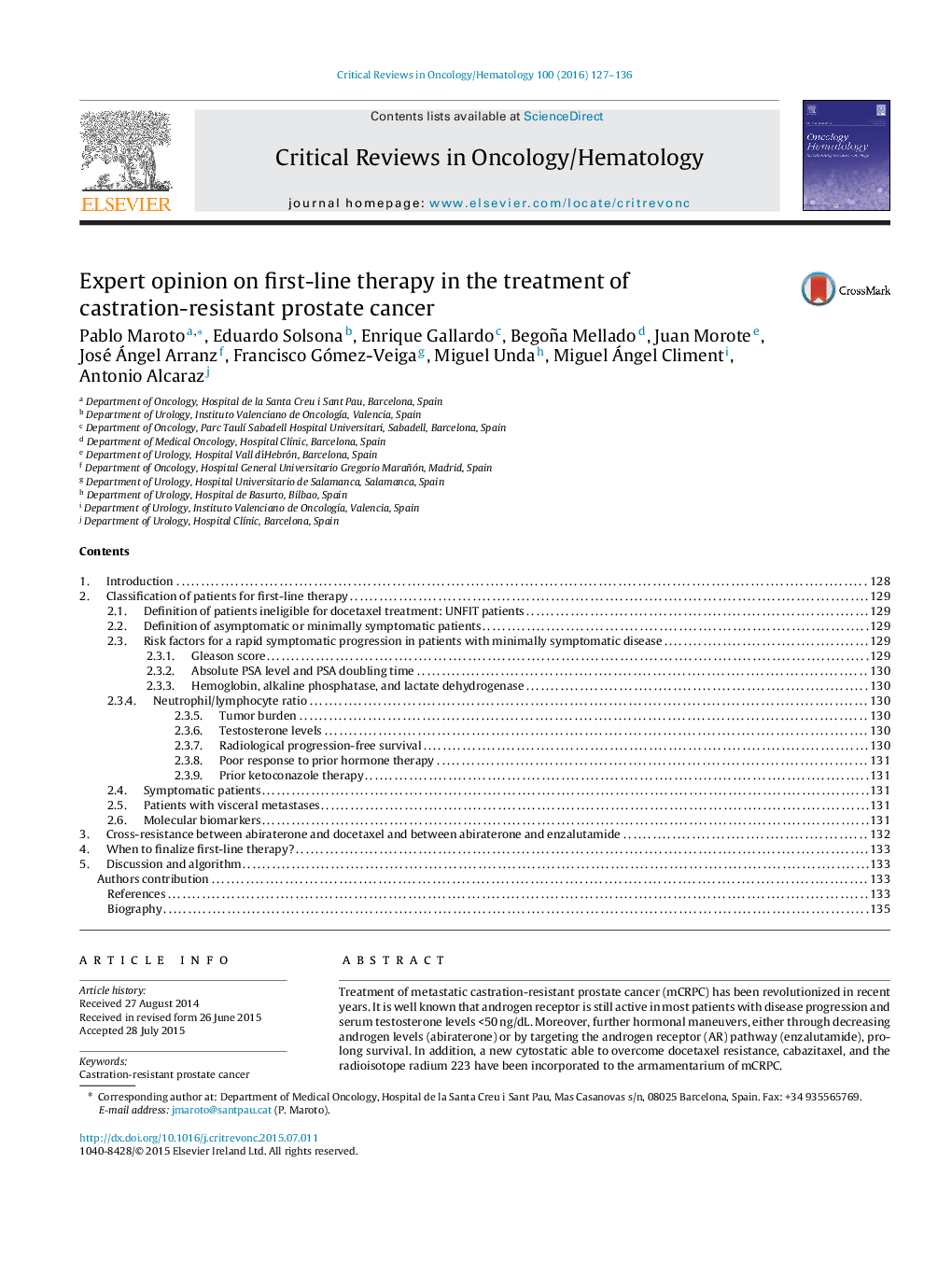| Article ID | Journal | Published Year | Pages | File Type |
|---|---|---|---|---|
| 6113437 | Critical Reviews in Oncology/Hematology | 2016 | 10 Pages |
â¢Docetaxel might improve survival for selected asymptomatic patients with mCRPC.â¢First line salvage hormone therapyhas not been compared to chemotherapy.â¢There is a lack of randomized data and predictive factors of response.â¢First line hormone therapy or Docetaxel should be based on prognostic factors.
Treatment of metastatic castration-resistant prostate cancer (mCRPC) has been revolutionized in recent years. It is well known that androgen receptor is still active in most patients with disease progression and serum testosterone levels <50Â ng/dL. Moreover, further hormonal maneuvers, either through decreasing androgen levels (abiraterone) or by targeting the androgen receptor (AR) pathway (enzalutamide), prolong survival. In addition, a new cytostatic able to overcome docetaxel resistance, cabazitaxel, and the radioisotope radium 223 have been incorporated to the armamentarium of mCRPC.mCRPC is not only a heterogeneous tumor, it changes over time developing neuroendocrine features or selection of clones resistant to hormonal maneuvers. In addition, the multiplicity of current treatments, make it necessary to design algorithms that help the specialist to choose the most appropriate treatment for a particular patient. The lack of randomized trials comparing face to face the different available options limit the scope of this review. In this article, the authors describe the prognostic factors for first line therapy in patients with mCRPC, and propose a treatment algorithm for mCRPC based on the levels of scientific evidence available and, if not available, on the consensus between medical professionals. Finally, the panel discuss how to define progressive disease in the setting of mCRPC and treatment with targeted therapies.
